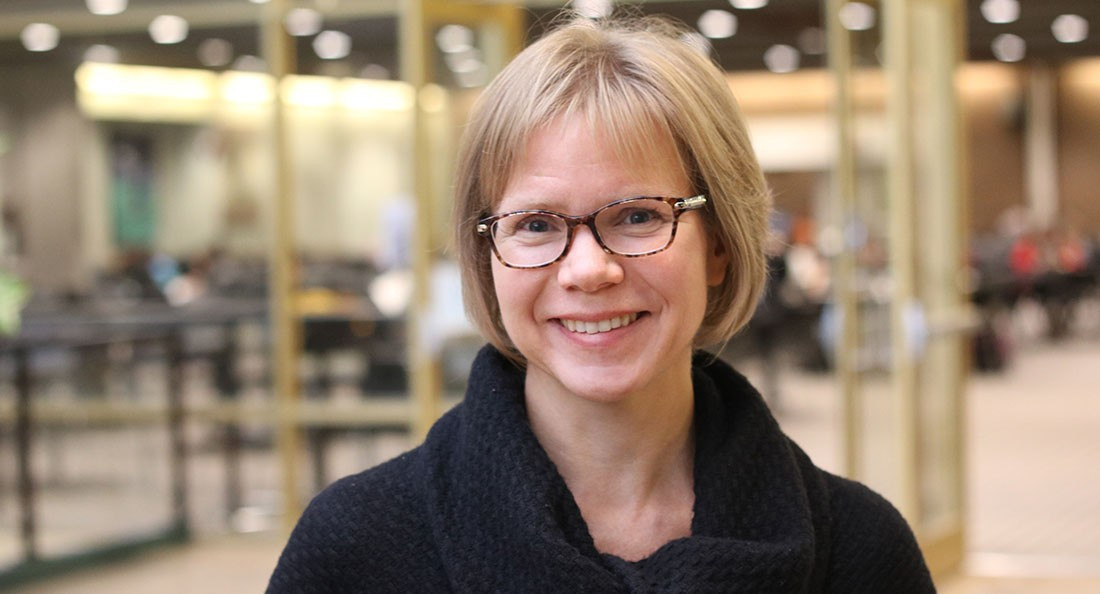PROFile: Pauline Ripat
Associate Professor in the Classics Department
Professor Pauline Ripat has a long history at the University of Winnipeg. She did her undergraduate degree at the university, and then came back to teach as a sessional in 2001, which turned into a permanent position teaching in the classics department.
Ripat says her undergraduate degree was in classics. Classics is the study of Greek and Roman culture, society and history through a variety of disciplinary approaches.
“I think I had chosen it because you didn’t have to decide between doing history or art history or language or literature, because you could do all of those things within the fields of classics,” she says.
She says now her overall research title is a Roman social historian, but most of her research is focused on magic.
“I find that the study of magic intersects with so many different subjects,” she says. “So you can look at issues of gender, you can look at issues of power. You can study the relations to our ancient definitions of religions or concepts of science.”
Ripat says although magic doesn’t have a specific definition, it needs some sort of title.
“It’s a study that tends to collect different kinds of evidence that we might not otherwise pay any attention to,” she says.
“It’s (magic) individual attempts to control other people or control their own experience or manage their physical experience of the ancient world – manage their own health, but in ways that avail themselves of powers that are beyond their own bodies,” Ripat says.
Ripat agrees that there’s some levels of feminism and philosophy when it comes to studying magic, because it can be used to think about people other than male citizens in power. She says studying magic can help legitimize issues outside of the male power structure.
“It provides perspective on people’s lives, which can otherwise be difficult to capture,” she says. “It involves a lot of investigation to a lot of different forms of evidence, but also a certain amount of self reflection and trying to dig under what we think things are and why we think that way and the realization that many of the categories that we thought were stable are not stable at all.”
What’s your favourite thing about yourself? I think I like the fact that I take deadlines extremely seriously. I take some pride that I’m a meeter of deadlines. That seems like such a boring thing to be pleased with.
Or perhaps also, for better or worse, (I’m) willing to entertain types of evidence or questions that will perhaps not be taken as seriously as I think they ought to be by other people in my discipline. Which isn’t to say that people don’t, but it’s always a bit embarrassing when I’m asked by someone else who works in the field what I work on, because to say that I’m working on magic or to say specifically that I’m investigating the evil eye, generally there isn’t much of a conversation after that. People find that a bit frivolous.
I’m willing to look into subjects others might find frivolous, even though it might not reflect all that well upon me.
Published in Volume 72, Number 17 of The Uniter (February 8, 2018)








